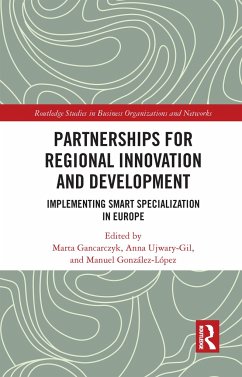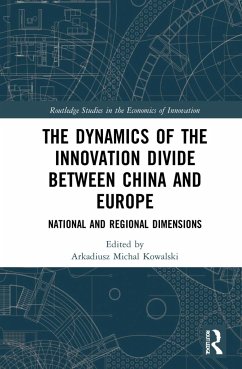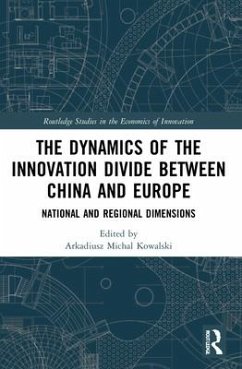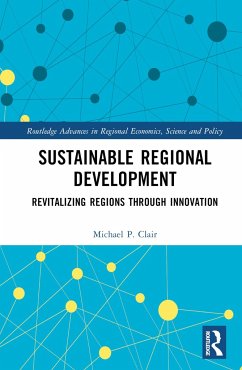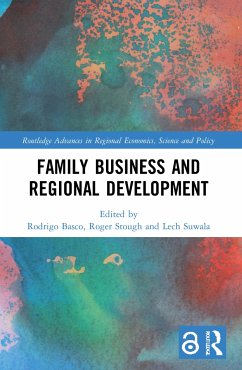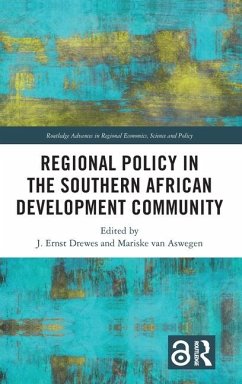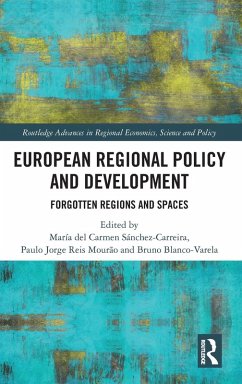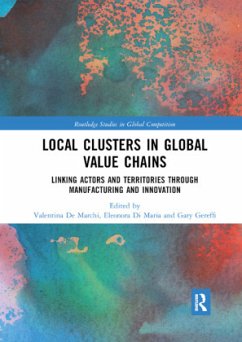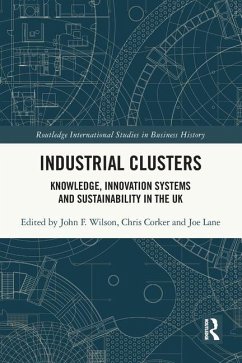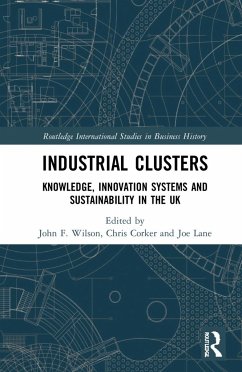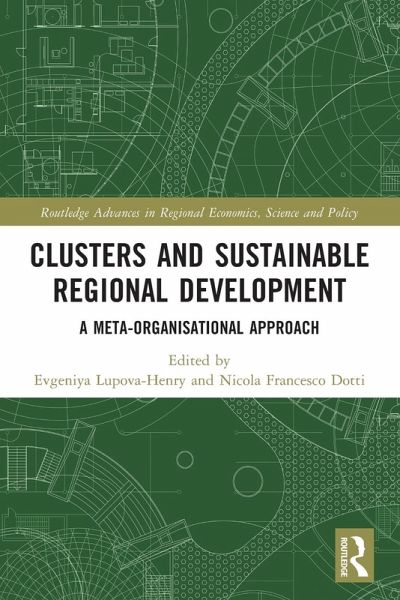
Clusters and Sustainable Regional Development
A Meta-Organisational Approach
Herausgegeben: Lupova-Henry, Evgeniya; Dotti, Nicola Francesco
Versandkostenfrei!
Versandfertig in 6-10 Tagen
43,99 €
inkl. MwSt.

PAYBACK Punkte
22 °P sammeln!
Clusters and Sustainable Regional Development conceptualises the role of organised clusters in the transition towards sustainability. It introduces a novel perspective on these clusters, viewing them as deliberate collective actors within their environments that can become the driving force for transformation in their regions or nations.The book draws upon the meta-organisational perspective in cluster studies, in contrast to traditional approaches. This view suggests that clusters are not merely territories or geographical areas, but organised entities. As such, they are defined as territoria...
Clusters and Sustainable Regional Development conceptualises the role of organised clusters in the transition towards sustainability. It introduces a novel perspective on these clusters, viewing them as deliberate collective actors within their environments that can become the driving force for transformation in their regions or nations.
The book draws upon the meta-organisational perspective in cluster studies, in contrast to traditional approaches. This view suggests that clusters are not merely territories or geographical areas, but organised entities. As such, they are defined as territorially anchored groups of independent organisations engaging in joint decision-making, pursuing system-level goals and capable of purposive collective action.
This text introduces a new set of ideas and questions at the intersection of economic geography, regional and cluster studies, organisation and management, policy and governance research. It will appeal to researchersfrom these diverse fields seeking to further develop the meta-organisational view of clusters as well as conceptualise their role in sustainability transitions.
This book will also be a useful guide for policymakers who have an interest in the dynamics of economic development and the transition towards sustainability.
The book draws upon the meta-organisational perspective in cluster studies, in contrast to traditional approaches. This view suggests that clusters are not merely territories or geographical areas, but organised entities. As such, they are defined as territorially anchored groups of independent organisations engaging in joint decision-making, pursuing system-level goals and capable of purposive collective action.
This text introduces a new set of ideas and questions at the intersection of economic geography, regional and cluster studies, organisation and management, policy and governance research. It will appeal to researchersfrom these diverse fields seeking to further develop the meta-organisational view of clusters as well as conceptualise their role in sustainability transitions.
This book will also be a useful guide for policymakers who have an interest in the dynamics of economic development and the transition towards sustainability.





